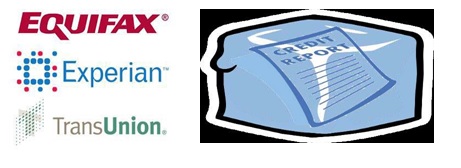 Free Security Freezes Coming Soon!
Free Security Freezes Coming Soon!
By the GWAAR Legal Services Team
Starting this fall, a new law will require the big three credit reporting agencies – Equifax, Experian, and TransUnion – to let you freeze your credit report for free. Credit freezes, also known as security freezes, restrict access to your credit report. Security freezes are often recommended for individuals who have been the victim of identity theft or whose personal information was released in a security breach.
If your credit report has been frozen and you, or an identity thief, apply for a new loan or credit card in your name, the bank will not be able to check your credit report. Without access to your credit report, the bank will deny the application. If a security freeze is in place and you want to apply for a loan or credit card or open a new bank account, you will have to ask each credit reporting agency to unfreeze your credit report.
In many states, the credit reporting agencies can charge a fee to freeze and unfreeze credit reports. Although credit reporting agencies may waive these fees for victims of identity theft who provide a copy of a police report, other individuals are required to pay anywhere from $3 to $10, depending on their state’s laws. Because individuals must request a security freeze with each credit reporting agency, their total cost could be as much as $30 each time they request a security freeze or ask for a freeze to be lifted.
The new law limits security freezes to only impact businesses requesting consumer information for credit purposes. That means that parties requesting credit reports for employment background checks, tenant background checks, or insurance policies will still have access to credit information when a security freeze is in place. The law also does not apply to existing creditors or debt collection agencies who are reviewing accounts or collecting money that is owed to them.
The new law goes into effect on September 21, 2018. This will give the credit reporting agencies time to update their websites to make it easy for you to re-quest a free credit freeze or ask to lift a freeze.
Keep in mind that, although security freezes can be useful, they do have some limitations. For example, a freeze should prevent an identity thief from opening a new credit card in your name, but it will not stop someone who has access to an existing account from using it. In addition, a security freeze will not prevent tax identity theft, which occurs when some-one files a tax return in another person’s name. You should check your bills regularly for mistakes and review your credit reports every year to make sure there are no errors.
Copyright GWAAR, 2018